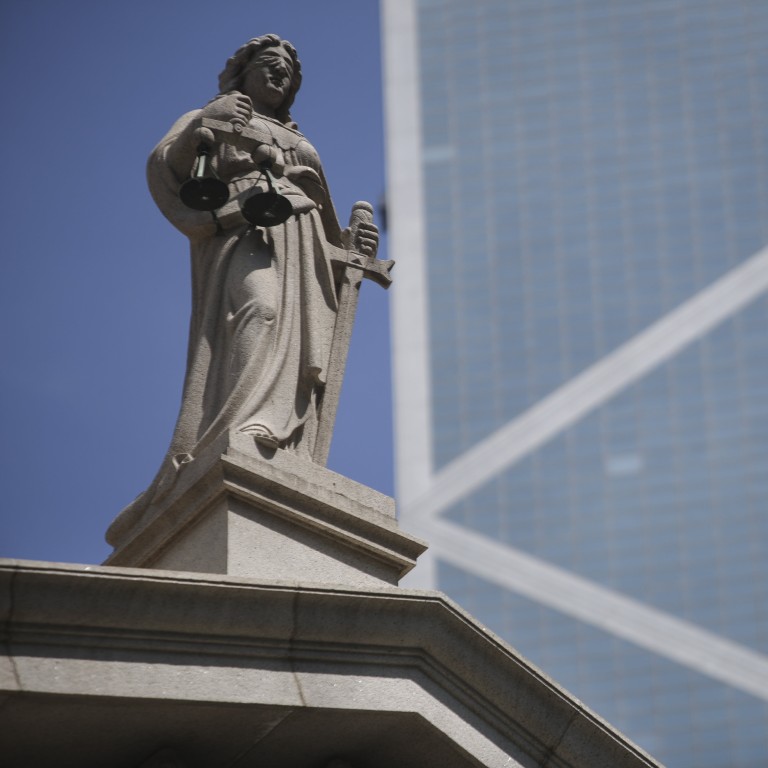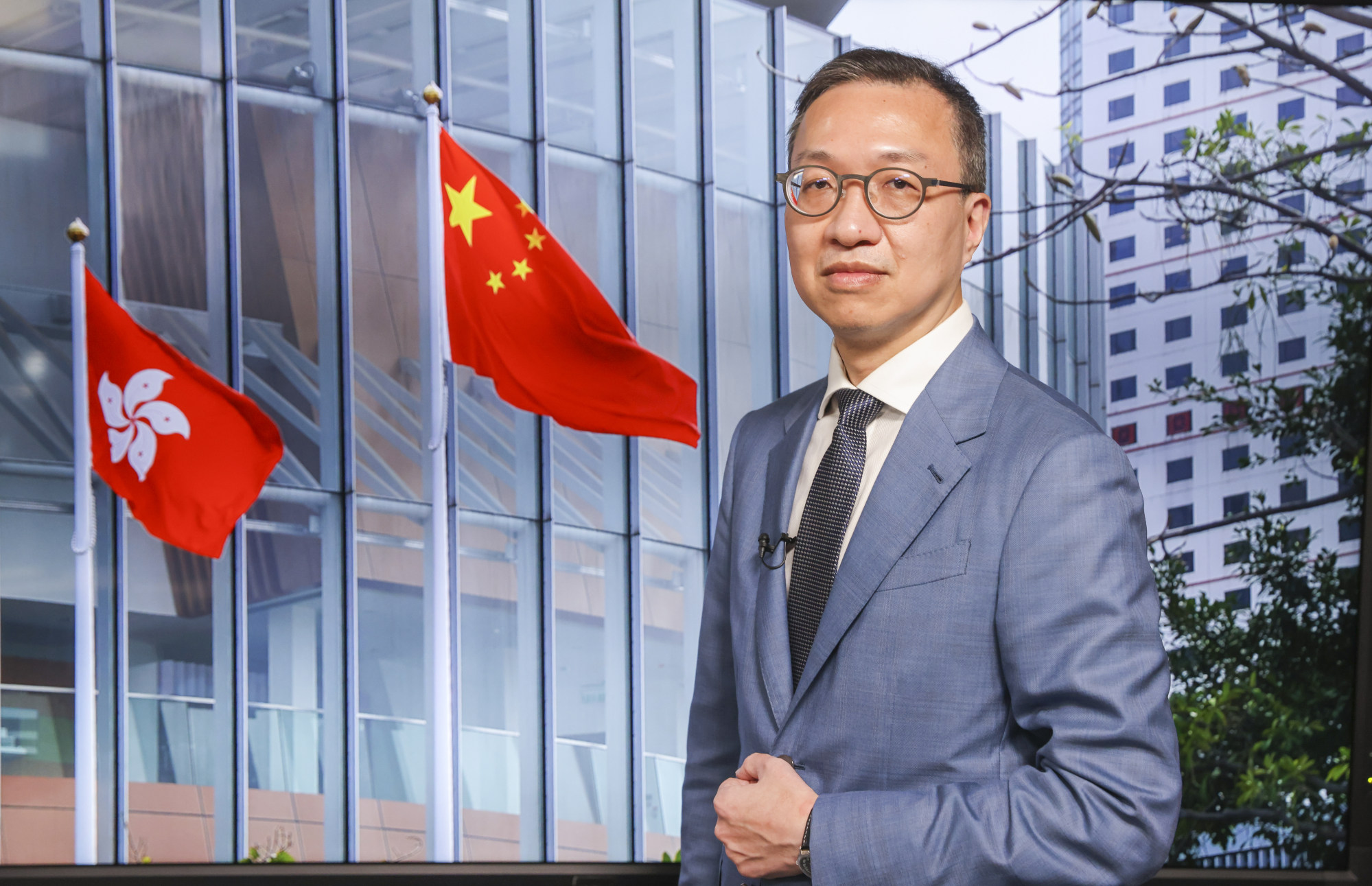
Legislation to block overseas lawyers from Hong Kong national security trials could be in force within 6 months, justice secretary says
- Secretary for Justice Paul Lam pledges to listen to ‘constructive opinions’ from legal profession and public before amendments are made
- Lam speaks out just days after Bar Association warns against blanket ban on overseas lawyers in sensitive cases
Hong Kong’s justice minister promised on Tuesday to amend legislation to block overseas lawyers from involvement in national security trials within the first six months of the year.
But Secretary for Justice Paul Lam Ting-kwok said he planned to consult the legal profession and the public, adding he was prepared to listen to “constructive” viewpoints.
He was speaking only days after the Bar Association warned against a blanket ban on overseas lawyers taking on sensitive cases and insisted it would not be “conducive to the administration of justice and rule of law” in the city.
“I understand members of the public and the legal sector will have a lot of views over the matter. We hope to harness the collective wisdom and look into whether we can address the constructive opinions being made,” Lam told a radio programme.

The government earlier signalled its plan to amend the Legal Practitioners Ordinance in the wake of Beijing’s interpretation of the national security law to resolve the row over lawyers from outside the city appearing in sensitive cases.
The controversy was triggered by the government’s failed bid in the city’s top court to block British barrister Timothy Owen from appearing for media tycoon Jimmy Lai Chee-ying when he stands trial for charges of collusion with foreign forces.
Lai’s trial, at first set for last December, was adjourned that month to September.
Beijing ruled later that the city’s leader and the Committee for Safeguarding National Security, headed by the chief executive, should decide whether foreign lawyers were allowed to participate in national security trials.
It remained uncertain whether authorities would tackle cases in a one-size-fits-all or case-by-case approach, despite the committee’s earlier endorsement of the government’s plan to amend the Legal Practitioners Ordinance.
Committee backs ban on overseas lawyers in Hong Kong national security cases
Victor Dawes, the re-elected chairman of the Bar Association, appealed for flexibility last week.
He said the association did not believe there should be a blanket ban on overseas counsel for all national security cases, whether prosecution or defence lawyers, because not all trials would involve confidential information or state secrets.
Constitutional law expert Professor Albert Chen Hung-yee, also a Basic Law Committee member, said his understanding of the interpretation was that it did not preclude the possibility of case-by-case consideration of foreign lawyers’ participation in national security cases, although he did not have his own proposals on the issue yet.
But Tam Yiu-chung, the city’s sole delegate to China’s top legislative body, on Tuesday said a blanket ban was more appropriate and that he believed there was not much room for further discussion regarding the proposed amendment to the Legal Practitioners Ordinance.
‘A bold person’: why Beijing made Zheng Yanxiong its new top gun in Hong Kong
“It is clearer to draw a line in the sand by ruling out foreign lawyers from taking part in national security cases as it is difficult to tell whether the case involves state secrets in the first place,” he said. “There are not a lot of national security cases anyway.”
Lam also said in the radio interview that it was unlikely authorities would complete work this year to adapt about 76 pieces of legislation that still used colonial terms.
“Some bills are more complicated, while others might require consultation with the central government,” he explained.
Lam said the government would adopt an approach of “doing easy issues first before moving on to harder ones”.
Bar Association head calls for rethink on ban on foreign counsel national security cases
But he highlighted there would be sufficient progress this year on the enactment of Hong Kong’s own national security law based on Article 23 of the Basic Law, the city’s mini-constitution, that would supplement the 2020 Beijing-decreed legislation.
He pledged to take into account any fears raised by the public during the drafting stage.
“I hope all concerns will already be addressed by the time the bill is introduced,” he said.
Chief Executive John Lee Ka-chiu last week said his administration aimed to have the city’s national security legislation passed this year, or by 2024 at the latest.
The draft would include safeguards against risks posed by agencies involved in espionage and would set up methods to “manage” organisations ruled to be a threat, he said.
Lee added the new law would also deter foreign agencies from disguising themselves as institutions or “so-called seminars”.

